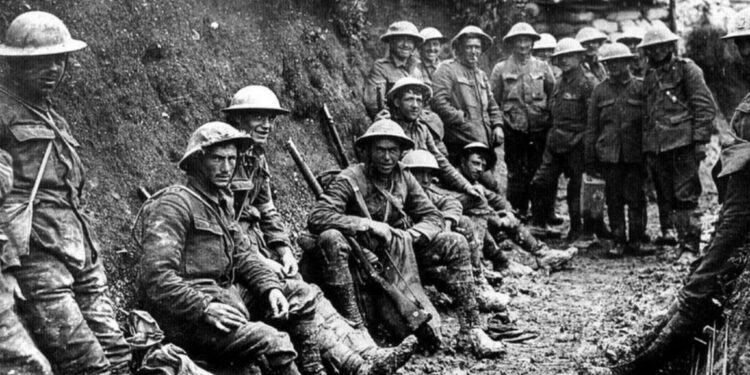The 28th of July, 1914, marked the beginning of one of the most devastating conflicts in human history – World War I. A series of interconnected events and simmering tensions among major European powers culminated in the assassination of Archduke Franz Ferdinand of Austria-Hungary and his wife, Sophie, in Sarajevo. This fateful incident, perpetrated by a young Bosnian nationalist, Gavrilo Princip, set off a chain reaction that engulfed the world in a relentless war that lasted for over four years.
The assassination of the Archduke and his wife served as a catalyst for Austria-Hungary to issue an ultimatum to Serbia, blaming the Serbian government for the assassination and demanding far-reaching concessions. As the situation escalated, Russia, allied with Serbia, came forward to support the latter, while Germany pledged its unwavering support to Austria-Hungary. Amidst these rapidly intensifying alliances, Europe found itself entangled in a web of military commitments and secret treaties, leaving no room for diplomatic solutions.
On August 1, 1914, Germany declared war on Russia and invaded neutral Belgium as part of the Schlieffen Plan, aiming to defeat France quickly before turning its full force on Russia. Britain, bound by treaties to protect Belgian neutrality, declared war on Germany on August 4, further solidifying the global dimensions of the conflict.
The Great War, as it was initially known, quickly devolved into a brutal and entrenched stalemate, with both sides digging trenches along the Western Front. New and devastating weapons, such as machine guns, poison gas, and tanks, wreaked havoc on soldiers and civilians alike. The war’s unprecedented scale led to an astronomical death toll, estimated at around 17 million and left more than 20 million injured.
World War I profoundly altered the geopolitical landscape and laid the groundwork for subsequent conflicts. The Treaty of Versailles, signed in 1919, imposed harsh penalties on Germany, leading to economic hardships and political unrest that fueled the rise of Adolf Hitler and Nazism. The repercussions of the war, including the redrawing of borders and territorial disputes, planted seeds of future tensions that would culminate in World War II.
The 28th of July, 1914, serves as a stark reminder of how the confluence of political, social, and military factors can plunge the world into catastrophe. The outbreak of World War I reshaped the course of history, causing immeasurable suffering and changing the global order. Today, it stands as a haunting lesson on the importance of diplomacy, communication, and peaceful resolutions to prevent similar tragedies from recurring.
newshub




Recent Comments